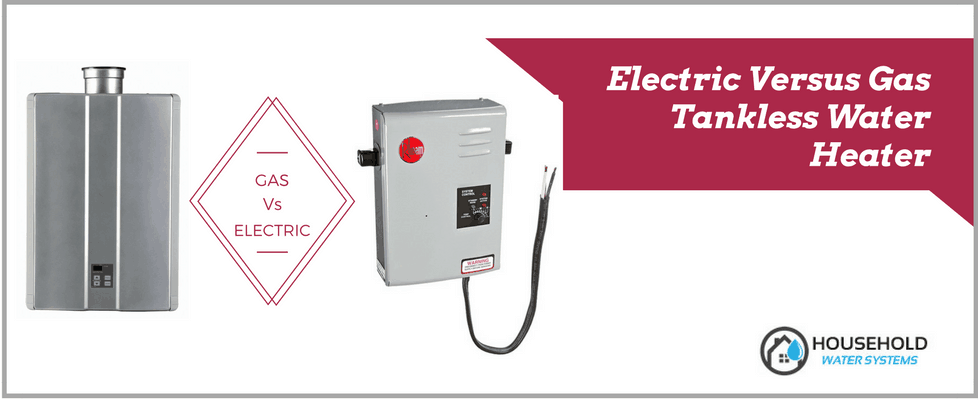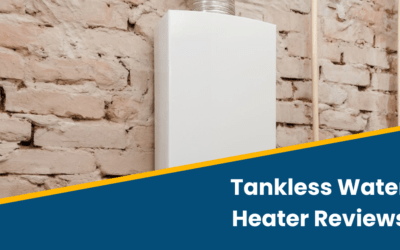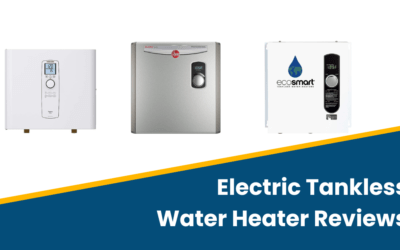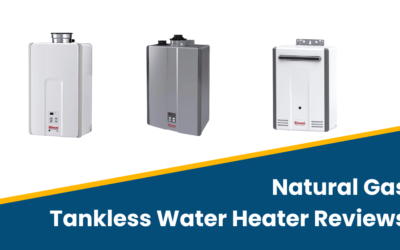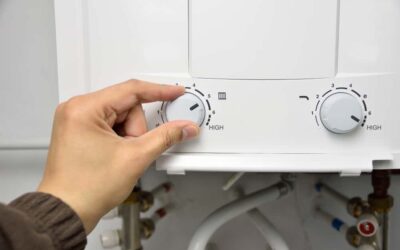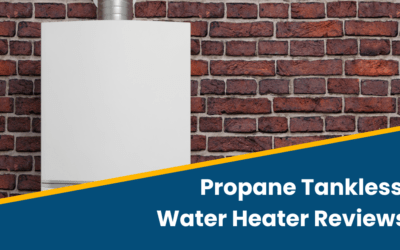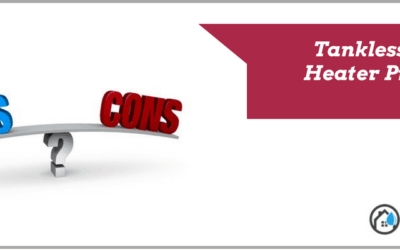As the popularity of tankless water heaters continues to grow, more and more people have begun asking about them.
Gas or electric?
Which option is better?
Honestly, there is no “correct” answer. What works perfectly for one household might not work as well for their next-door neighbors. There are multiple factors that must be considered before deciding which option will best suit your needs. Let’s consider a few of them now:
The Upfront Cost
There are two primary types of tankless water heaters: point of use model and whole home models. Of the two, point of use models are cheaper, but because whole home models are capable of servicing an entire home, they are more popular. At the time of this writing, a decent whole home electric tankless water heater on Amazon.com will cost between $500 and $800. By comparison, you can expect to spend between $750 and $1,350 for a reputable gas powered whole home model.
Operating Costs and Efficiency
While still more energy efficient than their storage model cousins, the efficiency of gas or propane powered tankless water heaters generally caps at 80% to 85%. On the other hand, electric tankless heaters have an average energy efficiency rating of 98%. The annual operating costs of a gas powered tankless heater tend to be approximately 15% less than those of an electric model because, per each BTU of output power, gas is cheaper. However, it is worth considering that the cost of electricity is more stable and is projected to rise significantly more slowly than gas prices in the next decade.
Installation Costs
Regardless of which option you choose, the installation costs for your new tankless water heater(s) is going to be expensive. Propane powered tankless water heaters require special air supply and venting requirements. In most homes, the existing vent ducts and gas lines will need to be retrofitted. Depending on the size of your home, these installation costs can add up quickly.
Conversely, most modern electric tankless water heaters feature sleek, compact designs. This enables them to be placed almost anywhere in the home, including nontraditional locations like crawl spaces and attics. They do not require the ventilation of exhaust gases. The downside to choosing this type of unit is that your home’s electric system may require an upgrade, and depending on the size of your home, you may be required to purchase multiple electric tankless heaters to ensure that you meet your minimum flow rate.
Flow Rates
Simply put, gas powered tankless water heaters are more powerful than their electric cousins. The average gas tankless water heater has a flow rate of 7 to 8 gallons per minute, and most models can maintain this rate during the cold months of winter. In warm climates, most electric models will have a similar flow rate, but depending on how cold your local climate is during winter, this flow rate can drop to as low as 3 to 3.5 gallons per minute.
Maintenance and Lifespan
On the whole, tankless water heaters powered by electricity require a minimal amount of maintenance. Other than routine cleanings of the inlet screen filter, there is little else you are required to do. Their gas powered cousins, on the other hand, do require annual inspections by a trained and licensed professional. These inspections are done to ensure that the unit is performing optimally and is combusting fuel safely. Should a problem arise, electric tankless heaters tend to be simpler to diagnose and repair because they do not have the complex fuel controls and heat exchangers that gas powered models do. However, if your home loses power, you will not have access to hot water until it is restored.
Environmental Impact
Concern for the environment is one of the primary reasons why more and more families are making the switch to tankless water heaters. In particular, greenhouse house emissions, which are produced via the burning of fossil fuels, have become a source of concern. Using any type of tankless water heater is going to be more energy efficient than a traditional tank style model, but gas powered tankless water heaters still rely upon the burning of fossil fuels to operate. They also require several extra supplies along with venting materials for installation. Consequently, in terms of eventual impact on landfill space, electric tankless water heaters are the decidedly better option.
In Conclusion
Before choosing a specific model for your home, you will need to carefully weigh the pros and cons of each choice. A trained professional plumber will be able to help you evaluate the merits of each type and decide which one will best suit your needs. Always make sure to check out each model’s specifications to make sure it will be able to meet the hot water demands of your household. In the end, your home (and the environment!) will thank you for making the switch to tankless.

